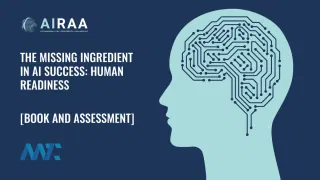Leading with TIDE: A Practical Framework for Modern Team Management

Strong leadership is no longer defined by authority alone in today’s workplace. The best leaders foster cultures of collaboration, trust, and emotional intelligence—especially in environments that are increasingly hybrid, diverse, and fast-paced. To support this shift, my acronym TIDE offers a concise yet powerful framework: Teamwork, Inclusion, Delegation, and Empathy. These four principles help leaders not only manage effectively but also cultivate resilient, high-performing teams.
Let’s explore what each component of TIDE means in practice and why it’s vital to modern leadership.
Teamwork: Building a Foundation of Mutual Accountability
At the heart of any successful group effort lies teamwork. But true teamwork isn’t just about getting along—it’s about shared responsibility, clear communication, and a commitment to collective outcomes.
Leaders who emphasize teamwork help align individual efforts to a larger purpose. They break down silos by encouraging cross-functional collaboration, clarifying roles, and creating an environment where diverse skills are valued and synchronized. Importantly, effective teamwork also depends on psychological safety. When team members feel safe to speak up, experiment, or admit mistakes, innovation flourishes and performance strengthens.
To lead with teamwork in mind, managers should routinely ask: Is my team aligned on goals, communicating transparently, and supporting each other when challenges arise?
Inclusion: Leveraging Diverse Perspectives
Inclusion goes beyond representation—it’s about ensuring that every team member feels respected, heard, and empowered to contribute. Inclusive leaders understand that diversity of thought, background, and experience fuels creativity and problem-solving.
Promoting inclusion requires conscious effort. Leaders must actively listen, challenge biases, and design equitable systems for participation. This includes rethinking how meetings are run, how decisions are made, and how feedback is given. Inclusive practices—like rotating speaking opportunities or encouraging asynchronous contributions—help make room for every voice.
When inclusion is embedded into daily operations, teams become more adaptable, innovative, and connected. Inclusion isn’t just the “right thing” to do—it’s a smart strategic advantage.
Delegation: Empowering Others Through Trust
Delegation is not about offloading tasks—it’s about empowering others to lead. Leaders who delegate effectively foster ownership, accelerate professional growth, and free themselves to focus on high-impact work.
Too often, managers fall into the trap of micromanagement or hoarding responsibilities out of fear that the quality will suffer. But trust is a muscle, and delegation builds it. The key is clarity: clearly communicate the desired outcome, provide any necessary context or support, and then step back to let the team member take the lead.
Delegating also signals respect. It tells employees that their skills are valued and that they are trusted to make decisions. In turn, this builds confidence and expands the team’s capacity to execute.
Empathy: Leading with Humanity
Empathy is the leadership skill that connects all the others. It’s the ability to understand and genuinely care about what others are experiencing—whether that’s stress, motivation, personal goals, or external challenges.
Empathetic leaders tune into both verbal and nonverbal cues. They ask open-ended questions, listen without judgment, and respond thoughtfully. Especially during times of uncertainty or change, empathy builds the trust that enables people to stay engaged and resilient.
But empathy is also a management tool. When you understand what drives your team, you can tailor communication, assign roles that align with strengths, and resolve conflict more effectively. It’s a catalyst for loyalty, morale, and sustained performance.
Bringing It All Together
When practiced together, Teamwork, Inclusion, Delegation, and Empathy form a leadership philosophy grounded in trust, empowerment, and shared success. Like the tides they reference, these forces are constantly in motion—requiring ongoing attention, adaptation, and care.
Leaders who embrace TIDE don’t just manage teams—they shape cultures where people thrive, innovate, and deliver their best work. Whether you’re guiding a small group or a large organization, leading with TIDE offers a grounded, human-centered approach that meets the moment.
Leadership isn’t about having all the answers—it’s about creating the conditions where others can find and act on the best solutions together. By anchoring your approach in TIDE, you generate more than outcomes. You create momentum.







